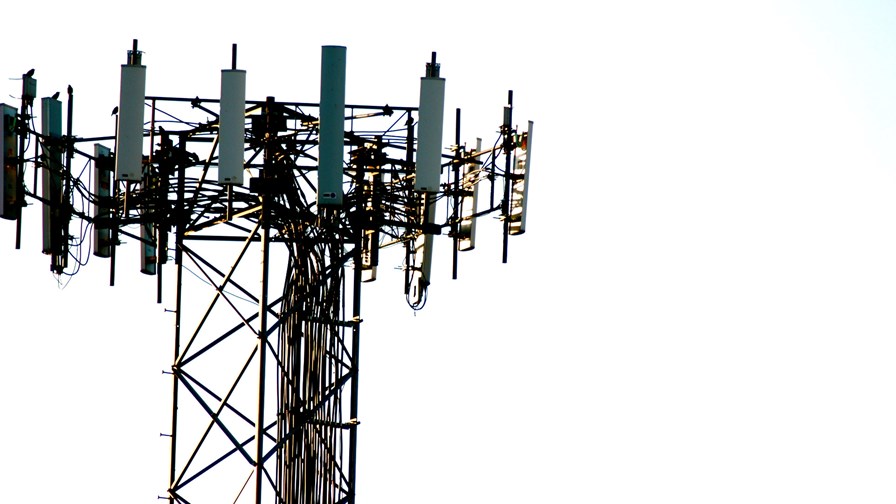Orange's Totem goes for pole position in race to exploit passive infrastructure assets

via flickr © Scott Meis (CC BY-ND 2.0)
- TowerCo competition takes off in Europe
- Autonomous new towers company formed but still under Orange's control
- Shades of BT and Openreach?
- Totem starts life with 25,000 cell sites in situ across France and Spain - and more to come
It's a commonplace happening in London; you wait hours in the rain for a Number 29 bus from Finsbury Park to Oxford Circus and then five of the big red things turn up in a convoy. Now something similar is happening in Europe's telecommunications tower market. Last week no operators were announcing the spin-off of their mobile towers into new companies and presenting themselves as potential "5G Superhosts"; this week there are two (so far - it is only Thursday after all). First out of the traps on Monday, was Vodafone's Vantage Towers, which hopefully will not turn out to be Fawlty. Today it is "TOTEM" Orange's rival service that is pushing for pole position.
According to Orange's PR blurb, "In the context of its Engage 2025 plan, Orange is reinventing its operator model and is creating a European TowerCo destined to become a value-creating entity by: capitalising on its industry-leading passive mobile infrastructure assets, focusing on revenue growth and optimising operational efficiency; and delivering both organic and inorganic growth. The TowerCo… will be run by a fully independent and dedicated management team."
Orange stresses that the independence of Totem will be guaranteed via a separate legal structure owned directly by the Orange Group and that management of the new company will, at all times, be completely independent from retail operations. Furthermore, no members of the Totem board of directors will be from Orange's retail business will be externally appointed "to drive operational excellence".
So, much is being made of the independence and neutrality of Totem (and Vantage Towers too) but it might be as well to bear in mind that the same heavy emphasis was placed on the much-delayed divestiture of BT's Openreach wholesale arm, that to this day still remains semi-detached from its parent rather than completely divorced from it.
It is also evident that both Orange and Vodafone are seeking to reassure their existing shareholders whilst simultaneously appealing to other network operators in an expanding industry ecosystem (including, for example, IoT and Smart Cities as well as 5G) as they strive to commercialise innovative new services. If the BT/Openreach relationship is anything to go by, the reality is that true independence of Totem (and Vantage) may take a long time to achieve.
That said, where operational autonomy is concerned. Orange says it will be achieved through the transfer of "all key passive mobile infrastructure assets (sites, land, leases and third-party tenancy contracts)" to Totem which will be granted "the necessary in-house capabilities to run operations for anchor and third-party tenants. These include deployment activities (build-to-suit construction programmes, turnkey roll outs) and maintenance."
Totem certainly enters the market with a full portfolio of assets. From the off it will have some 25,500 cell sites in place in France and Spain and "the Group will explore the possibility of integrating other passive mobile infrastructure assets from within Orange’s European footprint". Of that 25,500 sites, 17,000 are in France (55 per cent of which are towers and the remaining 45 per cent sited on rooftops) while Spain will contribute the balance of 8,000 macro sites that are more or less equally split between purpose-built towers and rooftop sites. The demand for co-location and proven operational capabilities has increased in recent years and, interestingly, the Spanish contingent will also be part of a network-sharing agreement between Orange and Vodafone.
35 years of lofty ambitions
The framework Master Service Agreement (MSA) between Orange and Totem calls for an initial 15-year contract with Orange with a "tacit" clause for two sequential 10 year renewals once the original 15 year contract expires. This, the press release says, will provide "long-term revenue visibility for Totem with its main customer, Orange. The renewal would necessarily cover the entire portfolio of sites. Rent applicable to Orange would conform to market practice, indexed to inflation with no cap and a floor of zero per cent. Finally, the number of strategic sites will be limited and will be less than five per cent of the existing French portfolio of sites."
In an over-the-shoulder, finger-in-the-air calculation based on supposition that had Totem actually existed as an independent corporate entity in 2020 its revenues would be upward of €500 million, then its EBITDA would have be in the region of €300 million, €200 million of which would have been generated in France - representing a margin of 57 per cent "including maintenance costs of about 5 per cent of the TowerCo’s revenues."
The intent is that Totem's primary growth will be organic and achieved by developing hosting activity across its entire portfolio. According to the press release, the co-location rate for the combined assets in France and Spain "should increase from 1.3x in 2020 to 1.5x by 2026 and up to 3,000 sites should be constructed over an eight-year period based on demand from Orange."
As far as inorganic growth goes, "Orange will be able to use the flexibility of the new entity’s entire capital structure, whether for issuing new shares or debt financing. Orange wishes to retain control of Totem to benefit from the important source of sustainable value creation it provides for the Group." Surely this must open to question Orange's claims for Totem's independence and neutrality? It'll be interesting to see how that particular circle can be squared.
Email Newsletters
Sign up to receive TelecomTV's top news and videos, plus exclusive subscriber-only content direct to your inbox.




